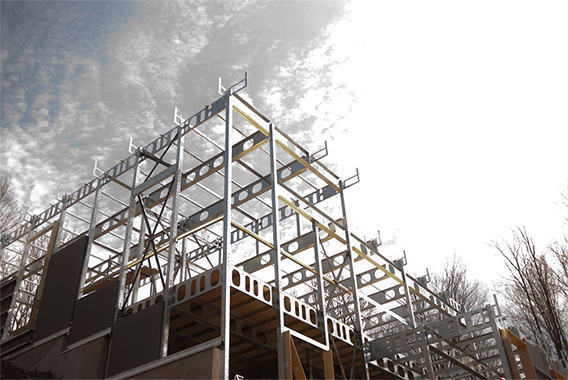
The convergence of digital tools, materials, and production processes has offered designers the opportunity to respond to diverse forms of users’ demands for design variations, in an efficient and precise model. Different methodologies have been proposed with the aim of efficiently accommodating flexibility in the building realm, based on technological applications. This paper demonstrates recent developments in combining advanced structural design with computational modeling, towards realizing a construction system that allows for significant flexibility and adaptability in housing design within the Canadian context. Based on advanced Digital Prototyping strategies, the system enables high accuracy in the design phase leading to subsequent precision in production and assembly. Such an application allows delivering high levels of detailing in production of structural components, thus supporting the intention of predefined assembly on jobsites and reducing waste. The paper represents a phase from an ongoing research endeavor that aims at enabling customization in housing realm, based on digitization of the design and production processes.